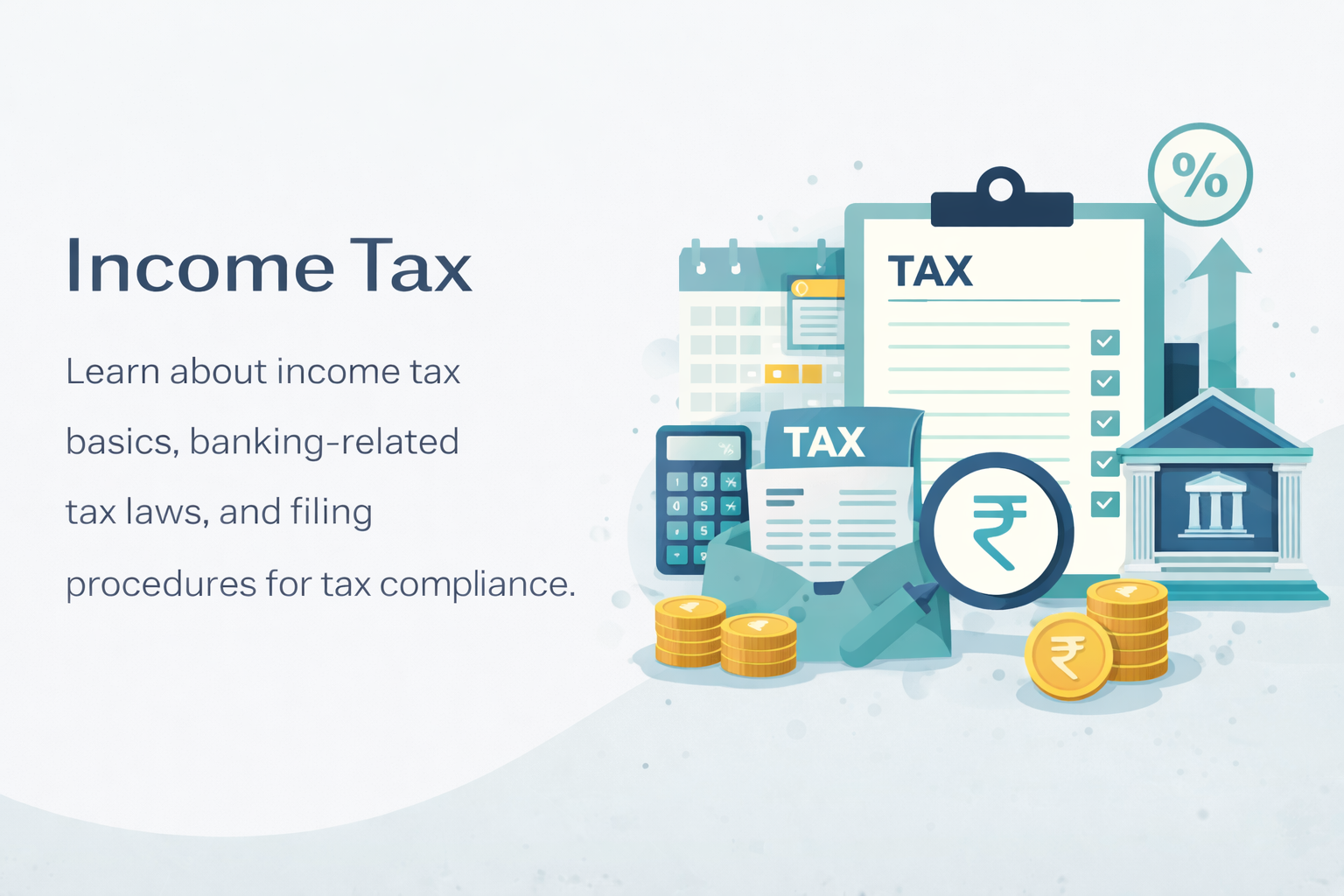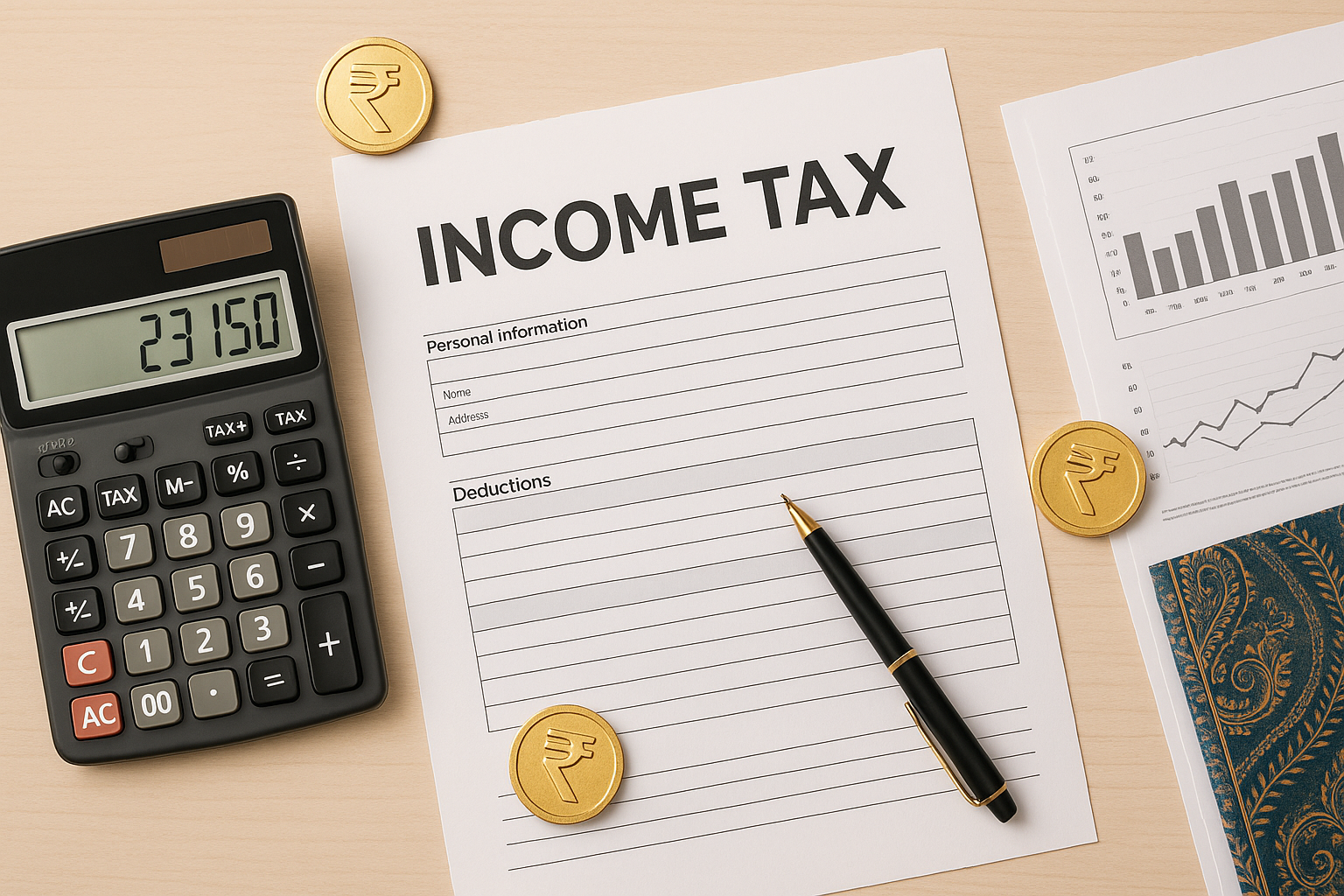Income tax is a tax charged on the annual income of individuals or businesses earned in a financial year. The tax paid by citizens serves as a source of revenue for the government. This money is utilized to fund essential services such as healthcare, infrastructure development and maintenance, salaries and pensions of government employees, and judiciary and police services. The income tax system also plays a significant role in helping the government achieve its socio-economic objectives. The Income Tax Act of 1961 in India outlines the rules and regulations for levying, administering, collecting, and recovering income taxes. It contains 298 sections, 23 chapters, and several key provisions covering all aspects of taxation in India.
Evolution of the Tax System in India
Income tax in India was first introduced by Sir James Wilson in 1860 to compensate for the financial losses caused by the military mutiny of 1857. A separate Income Tax Act was established in 1886 and remained in effect with revisions over time. In 1956, the Indian government referred the tax laws to the Law Commission to simplify the legislation and curb tax evasion. The current Income Tax Act, passed in 1961, was based on the recommendations of the Law Commission and the Direct Tax Administration Enquiry Commission chaired by Shri Mahavir Tyagi in 1958. It came into effect on April 1, 1962, and has since been amended several times to address loopholes in the Act.
Components of the Income Tax Act of 1961
The Central Board of Direct Taxes (CBDT) is responsible for the administration of direct taxes in India. It holds the authority to issue regulations for implementing the provisions of the Act.
Finance Act
Each year, the Finance Minister presents the budget for the upcoming financial year in Parliament. When the financial bill is passed by Parliament and signed by the President of India, it becomes the Finance Act.
Circulars and Notifications
To clarify specific provisions of the Act, the CBDT issues circulars and notifications from time to time, helping to resolve ambiguities in interpretation.
Types of Income Tax
Income tax in India is categorized into two types:
Direct Tax
Direct taxes are imposed directly on individuals and entities based on their income or wealth. Examples include income tax and corporate tax.
Indirect Tax
Indirect taxes are levied on the consumption of goods and services rather than directly on income. The tax liability is transferred from sellers to buyers. Examples include Goods and Services Tax (GST), excise duty, stamp duty, and entertainment tax.
Taxpayers and Assessees
Taxpayer
A taxpayer is an individual or organization obligated to pay taxes. Modern taxpayers often possess an identification or reference number issued by the government.
Assessee
As defined in Section 2(7) of the Income Tax Act, an assessee is a person liable to pay tax or any amount payable under the Act. This category includes anyone involved in tax assessment proceedings.
Types of Assessees
- Normal Assessee: A person required to pay taxes on income generated during the fiscal year or someone entitled to refunds under the Act.
- Assessee Representative: A person responsible for paying taxes on behalf of a third party, such as a non-resident, minor, or individual unable to manage their taxes.
- Deemed Assessee: A person legally considered an assessee under the Act, including those paying taxes on behalf of others.
- Assessee-in-Default: Individuals who fail to meet their statutory tax obligations. For example, employers must deduct taxes from employee salaries and deposit them with the government. Failure to do so makes the employer an assessee-in-default.
Assessment
Section 2(8) – Assessment
Assessment refers to the process of evaluating the validity of an assessee’s income claims and computing the tax payable, followed by imposing the tax liability.
Section 2(9) – Assessment Year
An “Assessment Year” is defined as the twelve months starting on April 1 and ending on March 31 of the following year. For example, the Assessment Year 2021-22 spans April 1, 2020, to March 31, 2021. During this period, the income earned in the previous year is taxed according to the rates specified in the relevant Finance Act. This is also referred to as the “Tax Year.”








